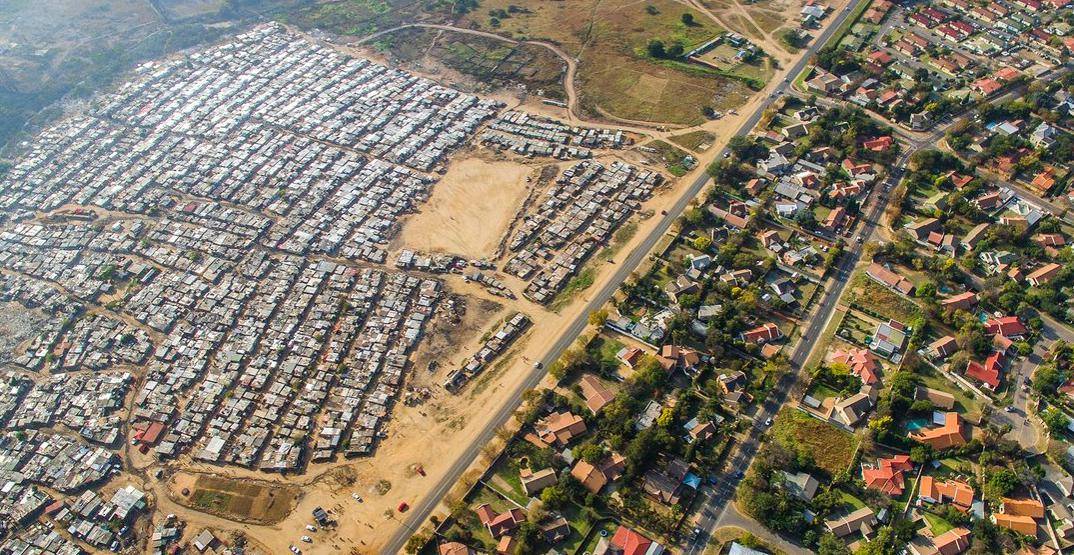
Thuli Madonsela’s Inequality Time Bomb (City Press, November 3 2019) reminded me of Jean-Jacques Rousseau’s famous quote: “Man is born free, [yet] he is everywhere in chains.”
From school to work, we are shaped by others’ assumptions of what’s right for us and so the links in the chains are forged. As a child, the poorer your family, the fewer options you have for your development. The poorer you are, the more virtue, sometimes talent, you are required to show to be deemed worthy to access opportunity.
READ: Thuli Madonsela: Embrace social justice or face inequality time bomb
Social justice is central to making South Africa fair and equal for all, depending on how the privileged define social justice against power and right to profit. I agree with Madonsela that policies must ensure that black people are primary beneficiaries to address social injustice holistically.
An insidious model of maleficence traps us in an apartheid economy that thrives on black poverty. Obstruction of justice starts in government and infiltrates all aspects of profiting or surviving in South Africa.
To eradicate poverty and inequality, it is necessary to address why we remain chained to it, which requires correctly identifying root causes and who profits unjustly.
Madonsela falls into the convention of abstracting inequality and describes our political economy without delving into power, profit and virtue.
South Africans struggle against a neoliberal economy that allows the wealthiest to wield more power than those who must work for them. For the majority, work is the only way to obtain money and build wealth. The less you earn, the longer it will take, if ever.
Madonsela has probably never been an ordinary jobseeker looking for entry into a labour market where it’s the norm to strip applicants of a right to fairness as per section 23.1 of the Constitution which says: “Everyone is entitled to fair labour practice.”
Recruitment is a vital labour market function, marking an official worker entry point, and must be scrutinised in terms of power as this is the point at which wages are negotiated and agreed upon.
If a black woman agrees to a salary lower than that of another worker, who is responsible for perpetuating inequality? The “pushover” black woman dominating low-wage job levels? The recruiter/employer who smartly coerced them into accepting an offer that was unfair and kinder to profit margins?
Employers want to pay workers less; Madonsela avoids this essential truth, thereby diverting from the essence of power, profit and inequality. We live in a society that lauds power and greed. If we want to destroy inequality, we need to restore worker dignity and protect the economic freedom workers are entitled to in our economy.
Employers, including government, have assumed powers they are not constitutionally entitled to.
Madonsela is on point when castigating leaders for being constitutionally dissonant. Labour markets are shaped by unbalanced power that perpetuates inequality.
If Madonsela has never been a jobseeker, or been interested in how inequality is transacted, her questions regarding addressing inequality maintain a level of inanity. If Madonsela has been a job seeker, did she apply to job adverts that were not upfront about pay when she must have known this information asymmetry is to weaken applicants’ wage-negotiating power?
If she was a job applicant, did the recruiters contact her and ask about her pay history and pay expectation without ever being upfront about the pay range on offer? Did she instinctively know that such disclosures could be used to disadvantage her during wage negotiation?
And if they asked her, did she give away her right to fairly negotiate wages and be benchmarked against unequal salary patterns? And if she refused, was she treated as though she would be a problem or was greedily wanting to negotiate for better economic opportunity and therefor had no virtue and was an unworthy worker?
If she surrendered her pay expectation and history, did she also provide a rival employer’s pay slip so that the hiring company could poach or price-fix her accordingly? If Madonsela gave her cost-to-company information to a firm meant to be competing for her talent, did she not violate the Competition Act with such disclosure?
The lot of the poor people and those dependent on an ability to secure decent wages is not addressed by a caviar crowd enjoying its own economic freedom, claiming success as a virtue. When we apply to them for jobs, they are overcome by the same rabid lust to drive worker value down and improve profits. Many pro-poor policy stances are duplicitous, unwilling to drive a paradigm shift in accord with constitutional values. For a few, there is profit in inequality; for their stooges maintaining an unfair balance of power, there are accolades such as bonuses, profit shares and executive status.
Employers use disempowered workers to drive unconscionable profits, entrenching apartheid labour modelling and allowing black people and all deserving workers diminished labour market rights.
Which team does Madonsela really bat for? The caviar crowd pushing conventional angst, or can she strip employer monopsony power to help sever the chains binding a labour market to inequality?
Leonie Hall is the founder of Payslip Ban SA




 Publications
Publications
 Partners
Partners









